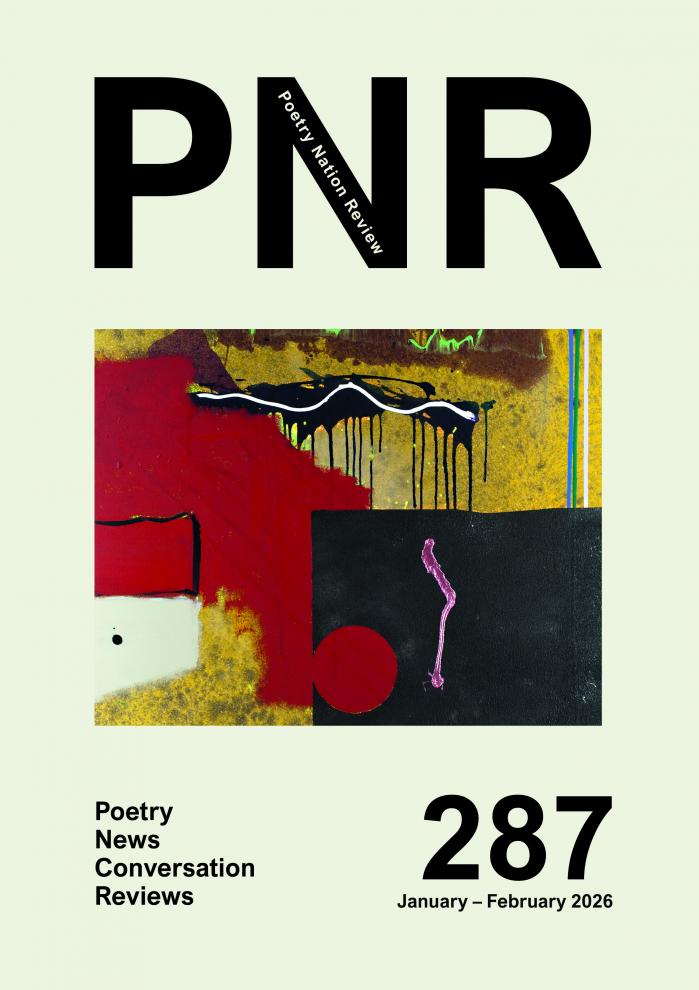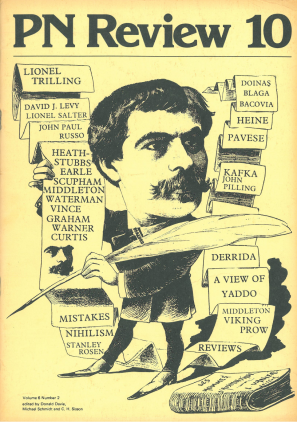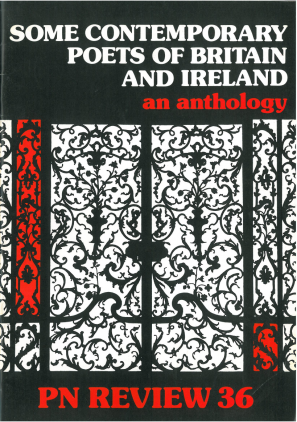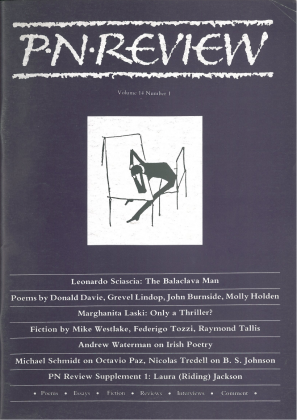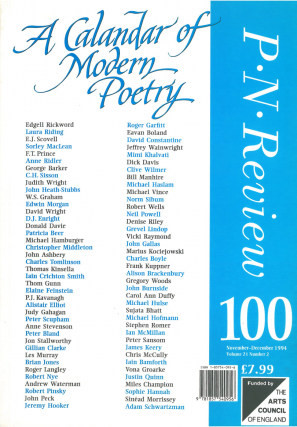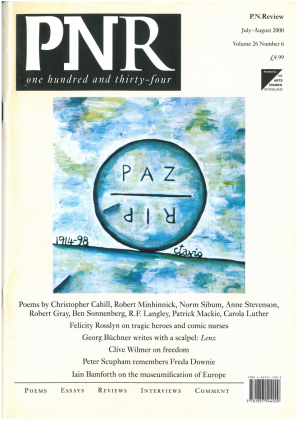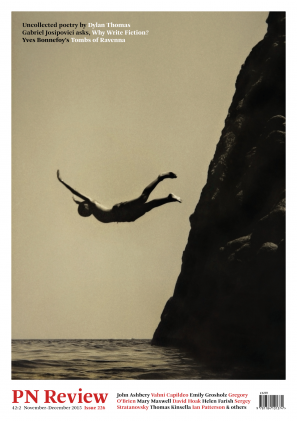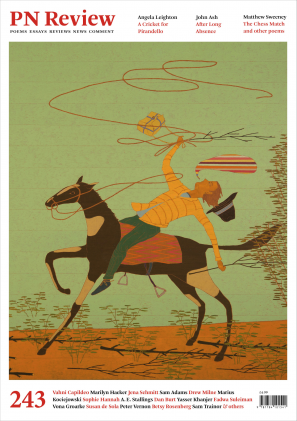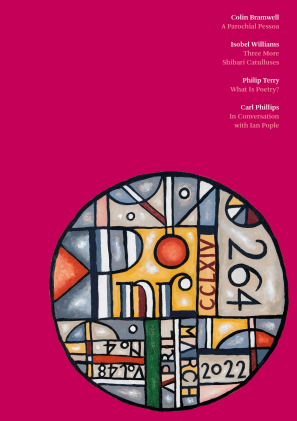...probably the cleverest of the current poetry magazines
Ian Hamilton, Daily Telegraph
Since we started as Poetry Nation, a twice-yearly hardback, in 1973, we've been publishing new poetry, rediscoveries, commentary, literary essays, interviews and reviews from around the globe. In 2023 PN Review celebrated its jubilee.
Our vast archive now includes over 280 issues, with contributions from some of the most exciting and radical writers of our times. Key contributors include Octavio Paz, Laura Riding, Christopher Middleton, John Ashbery, Les Murray, Patricia Beer, W.S. Graham, Eavan Boland, Jorie Graham, Donald Davie, C.H. Sisson, Sinead Morrissey, Sasha Dugdale, Anthony Vahni Capildeo, and many others.
Our vast archive now includes over 280 issues, with contributions from some of the most exciting and radical writers of our times. Key contributors include Octavio Paz, Laura Riding, Christopher Middleton, John Ashbery, Les Murray, Patricia Beer, W.S. Graham, Eavan Boland, Jorie Graham, Donald Davie, C.H. Sisson, Sinead Morrissey, Sasha Dugdale, Anthony Vahni Capildeo, and many others.
Subscribe to PN Review
SUBSCRIBEFrom the Archive
Tony Harrison in ConversationAt the heart of Tony Harrison's recent play, The Trackers of Oxyrhynchus, is his version of a fragmentary satyr play by Sophocles. But in Harrison's adaptation the Chorus of Satyrs - still goat-like and phallic, to be sure - is transformed into a squad of beery, North-Country clog-dancers. It is perhaps an attempt at resolving the conflict at the core of Harrison's work - between his polyglot erudition and his roots in working-class Leeds, between classical culture and class culture. Harrison has degrees in Classics and in Linguistics, has travelled all over the world and is conversant with several modern languages, including Hausa and Czech. Yet the more he travels in his art, the more insistently he returns to his home territory, where he finds himself cut off from his class, his family and - most ironically - the ... READ MORE
Readers' Choices
Rebecca Watts
(PN Review 239)
Rory Waterman
(PN Review 286)
Stav Poleg
(PN Review 279)
Stav Poleg
(PN Review 276)
Eavan Boland
(PN Review 121)
(PN Review 239)
Rory Waterman
(PN Review 286)
Stav Poleg
(PN Review 279)
Stav Poleg
(PN Review 276)
Eavan Boland
(PN Review 121)
Subscribe to our Substack to receive curated items from our archive.
SIGN UP
